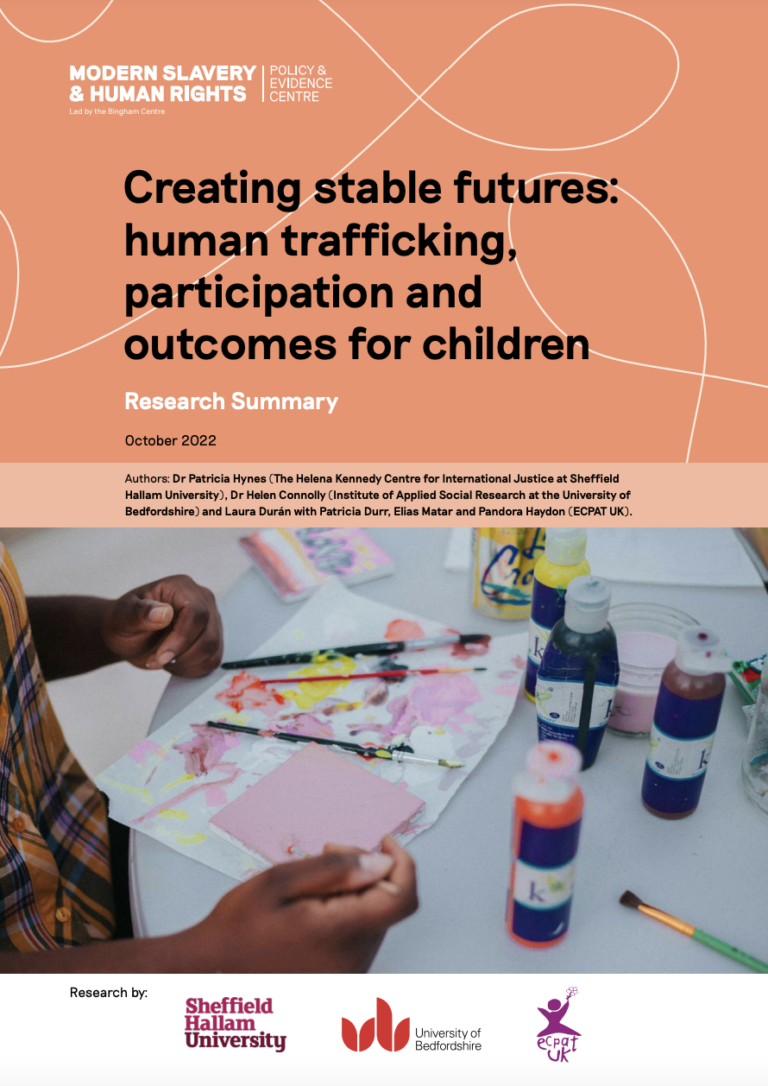The voices of children and young people who have experienced human trafficking, modern slavery or exploitation are missing from debates in the UK, with their opinions rarely taken into account in the development of law, policy and services. This includes a lack of focus on ‘outcomes’, made more complex by the variable meaning of the term in practice and in literature. The aim of this study was to understand what positive outcomes and pathways towards these positive outcomes might look like from the perspectives of young people subjected to human trafficking, modern slavery and exploitation.
This study followed the What Works for Children’s Social Care definition of ‘outcomes’ as the consequence of an action, where an action is a particular service or way of working, but with a focus on rights-based, child-defined outcomes, encompassing children and young people’s views of their own progress, lived experience and the main goals they wish to achieve. This definition is set out with an understanding that achievement of outcomes is dependent on the wider structures and contexts in which young people live their lives.

